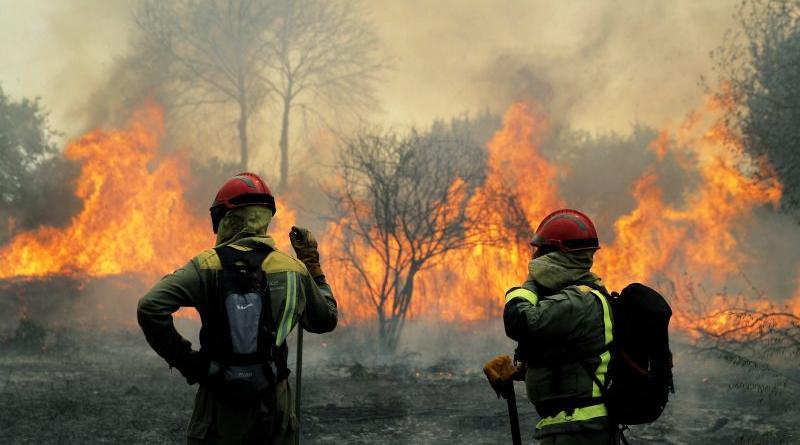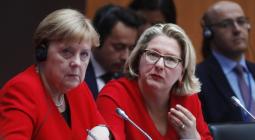EU leftists demand ‘climate emergency’ Parliament committee.

The European Parliament’s leftist group (GUE/NGL) has proposed setting up a special climate emergency parliamentary committee to shift the spotlight on to green issues even more over the next five years.
GUE/NGL has suggested that the new committee would be a special task force like the ones set up in the past to investigate the Lux Leaks financial scandal and the Dieselgate emissions testing fraud.
Climate change is currently handled by the environment committee (ENVI) but the 69-member-strong panel also deals with everything else from plastic waste and chemicals to disease prevention and food safety.
Other committees like energy and industry (ITRE), transport (TRAN) and agriculture (AGRI) also deal with climate policies to different extents. That is why the leftist group wants to dedicate one committee to it in order to focus minds.
Spanish MEP Sira Rego, the group’s candidate to be Parliament president, told reporters that “we want one of our first initiatives […] to be focused on the eco-social crisis”.
“We will bring to the Conference of Presidents the proposal to create a special committee on climate emergency,” Rego added. “It is a core issue that must be on the agenda.”
GUE/NGL is already in contact with other political groups that might be willing to support the proposal. “There should be a maximum level of consensus,” she said.
Even if the proposal does not get a sufficient majority within the conference of presidents, the group would propose a vote on setting up the “common sense” committee at the first sitting of the new Parliament next week.
“We will keep insisting on this because we believe it is a core element and if there is any way we can monitor the situation and make policy proposals, we will fight for it. That’s our commitment,” Rego explained, adding that she is “very optimistic” about their chances.
On paper, the idea is likely to get wide support as most of the political groups put green policies high on their agendas for the next five years. If anyone decides not to back it then “they will have to explain why”, Rego warned.
She also defended the need to build alliances with other groups as Europe faces a climate emergency, concluding that “saving the planet should be a common sense issue, even for conservative forces”.
Greenpeace EU told EURACTIV that the next Parliament “cannot just leave it up to the Commission” and suggested that the proposed committee should be tasked with issuing year-on-year emission-cutting recommendations.
Climate Action Network Europe Director Wendel Trio said that the committee “could be really helpful”.
However, he added that it would only work “if it had a strong mandate to decide on all legislation that impacts climate change”, citing taxation, agriculture and trade as areas that would need attention.
Indeed, adding another committee could mean a repeat of the ugly turf war that erupted between the Parliament’s environment and energy committees earlier this year.
Both claimed that a resolution on the Commission’s draft climate plan was within their area of interest, so the proposed climate emergency committee will have to be given a clear set of responsibilities.
Knock-on effect
The EU is currently locked in talks over a European Commission strategy that would see the bloc go climate neutral by 2050. An agreement fell apart at the last Council summit but a deal is expected by the end of the year or in early 2020.
A high-ranking Commission source told EURACTIV that setting up a committee dedicated to achieving that goal would be a step in the right direction but suggested that calling it a ‘climate emergency’ task force would be too alarmist.
The current EU executive is proud of its climate legacy and counts the signing of the Paris Agreement, an extensive set of clean energy laws for 2030 and the draft long-term 2050 strategy among its achievements.
More and more countries have decided to declare climate emergencies this year, including Canada, France, Ireland and the UK. The city of New York followed suit on Thursday (27 June).
However, the actual significance of declaring such an emergency has been called into question, after it was revealed that those four countries still subsidise fossil fuels to the tune of more than €23bn.
28 June 2019





